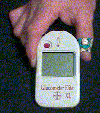
The information on this page is taken from the links at the bottom of this page and is provided to you as an educational service. It is not meant to be a substitute for consulting with your own physician.
Diabetes is a chronic disease that has no cure.
It is a leading cause of death by disease in Canada.

Types of diabetes
There are three types of diabetes:
Type 1 diabetes occurs when the pancreas no longer produces any or very little insulin.
The body needs insulin to use sugar for energy. Approximately 10 percent of people with diabetes have type 1 diabetes.
Type 2 diabetes occurs when the pancreas does not produce enough insulin
or when the body does not use the insulin that is produced effectively. 90 percent of people with diabetes have type 2.
Gestational diabetes is a temporary condition that occurs during pregnancy.
It affects two to four percent of all pregnancies
with an increased risk of developing diabetes for both mother and
child.
Is diabetes serious?
Diabetes is a leading cause of death by disease.
If it is left untreated or improperly managed,
the high levels of blood sugar associated
with diabetes can slowly damage both the small and
large blood vessels in the body, resulting
in a variety of complications:
-heart disease is two to four times more
common in people with diabetes than without;
With careful management, these complications can be delayed and even prevented.
What are the risks?
Risk factors for developing diabetes include the following:
What are the symptoms?
Signs and symptoms of diabetes include the following:
unusual thirst
-diabetes is a leading cause of adult blindness;
-in Canada, people with diabetes account for 28 per cent of all new cases of serious kidney disease;
-worldwide, half or more of all non-traumatic limb amputations are due to diabetes;
-diabetes is a major cause of erectile
dysfunction.
The first step in preventing the onset of these complications is recognizing the
symptoms that may indicate you have diabetes.
being age 45 or over
being overweight (especially if you carry most of your weight
around your middle)
being a member of a high-risk group (Aboriginal peoples, Hispanic, Asian or African descent)
having a parent, brother or sister with
diabetes
having given birth to a baby that weighed over 9 lbs at birth, or have had gestational diabetes
having high cholesterol or other fats in the blood
having higher-than-normal blood glucose
levels
having high blood pressure or heart disease
frequent urination
unusual weight loss
extreme fatigue or lack of energy
blurred vision
frequent or recurring infections
cuts and bruises that are slow to heal and
tingling or numbness in hands or feet.
It is also important to recognize that many people who have type 2 diabetes may display no symptoms.





